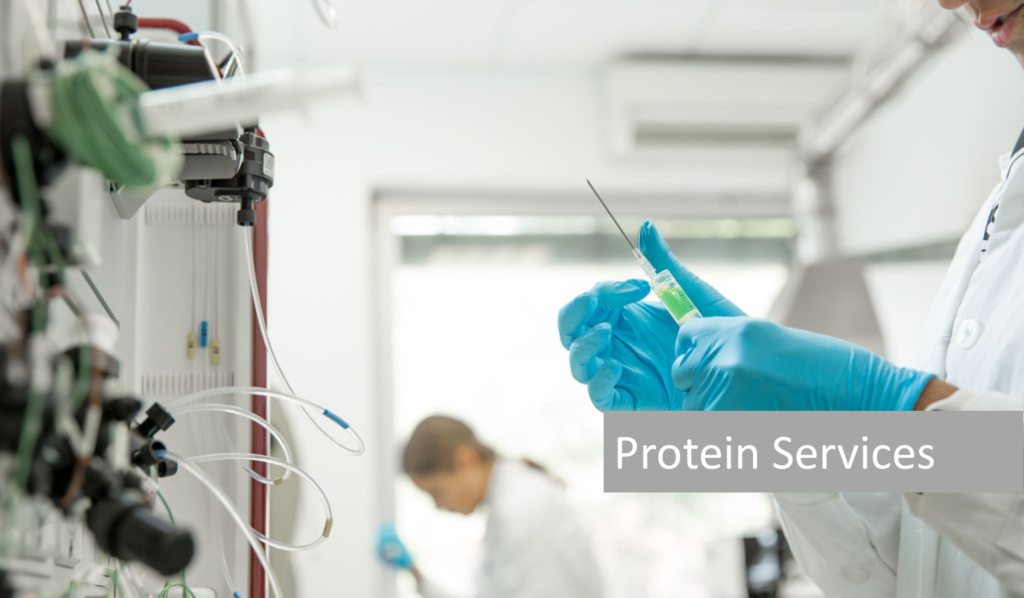Protein Expression
Products
Services

SERVICE DESCRIPTION
Boston Molecules is a leading provider of comprehensive, high quality recombinant protein services. We offer a variety of recombinant protein expression and purification services from gene to protein to crystallography. Developing biologically active recombinant protein is a challenge to many researchers in both academia and industry. With extensive training from world-renown enzymology laboratory and crystallography laboratory, scientists in Boston Molecules provide customers with highly purified, properly folded (including ion optimized and disulfide bond correctly positioned) recombinant protein production services.

FEATURES
From gene to protein
- Gene synthesis
- Cloning
- Transformation
- Expression & purification
From E.coli to mammalian
- E.coli
- Yeast
- Insect
- Mammalian
Protein Service Quotation Request Form
Our customer representatives are available 24/7/365 to assist you. Order By
- Email: [email protected]
- Phone: 617-651-1016
- Fax: 617-651-1016
Technical Resource
Protein Expression:
Proteins are synthesized when needed in the cell normally. The information for protein synthesis is generally stored in DNA, which is transcribed to messenger RNA (mRNA), and then translated into a protein.
In prokaryotes, the process of transcription and translation occur simultaneously, and the translation starts even before a mature mRNA transcript is fully synthesized. However, in eukaryotes, the processes of transcription and translation are spatially separated and occur sequentially with transcription happening in the nucleus and translation, or protein synthesis, occurring in the cytoplasm.
Transcription:
In both prokaryotes and eukaryotes, transcription occurs in three steps: initiation, elongation and termination. Transcription begins when the double-stranded DNA is unwound to allow the binding of RNA polymerase. Once transcription is initiated, RNA polymerase is released from the DNA. Transcription is regulated at various levels by activators and repressors and also by chromatin structure in eukaryotes.
In prokaryotes, there is no special modification of mRNA required; however, in eukaryotes, mRNA is further processed (e.g., removal of introns by splicing, addition of a cap at the 5´ end, and multiple adenines at the mRNA 3´ end), and the modified mRNA is then exported to the cytoplasm.
Translation :
Translation or protein synthesis is a multi-step process that requires a lot of molecules including transfer RNAs (tRNA), amino acids, ATP, GTP and other cofactors to transfer information from mRNA to protein in ribosomes. Although there are some particular differences existed, the overall process of protein synthesis is similar in both prokaryotes and eukaryotes with three stages of initiation, elongation and termination.
During initiation, the small subunit of the ribosome bound to initiator t-RNA searches for the mRNA starting at the 5’ terminal to identify and bind the initiation codon (AUG). The large subunit of the ribosome then joins the small ribosomal subunit to generate the initiation complex at the initiation codon. Protein factors as well as sequences in mRNA are involved in the recognition of the initiation codon and formation of the initiation complex. During elongation, tRNAs binding to their designated amino acids move to the ribosome where amino acids are polymerized to form a peptide. The sequence of amino acids added to the growing peptide depends on the mRNA sequence. Finally, the nascent polypeptide is released in the termination step when the ribosome reaches the termination codon (UAA, UAG or UGA).
